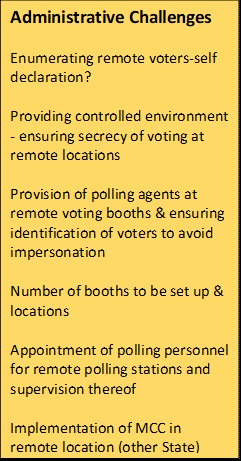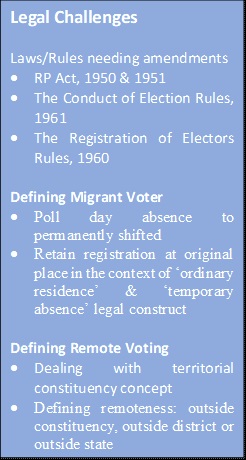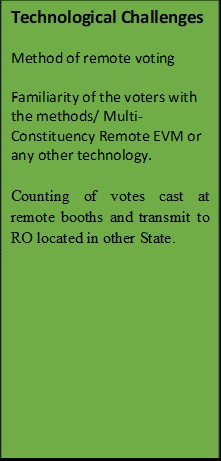In the age of technological advancement, disenfranchisement based on migration is no longer an option. General Elections 2019 had a voter turnout of 67.4%. The Election Commission of India is concerned that 30 crore voters didn’t vote, and that turnout differed by state/UT. Voters may not register at their new place of residence for a variety of reasons, so they don’t get to exercise their right to vote. One of the major reasons to improve voter turnout and ensure participatory elections is to address the inability to vote due to internal migration (domestic migrants). Migration within the country doesn’t have a central database, but work, marriage, and education-related migration are important components, based on data in the public domain. In terms of overall domestic migration, out-migration is prevalent among the rural population. Within the U.S., 85% of internal migration happens.
When Shri Kumar was appointed Chief Election Commissioner, he trekked to Dumak village in Chamoli district to get to know domestic migration issues firsthand. This inspired him to make sure migrants could vote where they live. Realizing such empowerment would entail a host of legal, statutory, administrative, and technological interventions, the ECI team has deliberated at length to find inclusive solutions to facilitate electoral participation of migrants across all socio-economic strata and explored alternative voting methods like two-way physical transit postal ballots, proxy voting, early voting at special Early Voting Centres, one-way or two-way electronic transmission of postal ballots (ETPBS), Internet-based voting systems, etc.
In an effort to find a technology solution that’s accessible, credible, and acceptable to everyone, the Election Commission led by Chief Election Commissioner Shri Rajiv Kumar and Election Commissioners Shri Anup Chandra Pandey and Shri Arun Goel is now looking at how to use a modified version of the time-tested M3 EVMs so domestic migrants can vote at remote polling stations. Thus, migrant voters wouldn’t have to travel back to their home district to vote.
Political parties have been given a concept note highlighting the challenges of defining domestic migrants, implementing the Model Code of Conduct, ensuring voting secrecy, providing polling agents with the tools to identify voters, remote voting, and counting votes, among other things.



With the help of a renowned Public Sector Undertaking, the Commission is now testing a Multi Constituency Remote Electronic Voting Machine (RVM) in order to allow domestic migrants to vote for their home constituencies from their remote locations, like where they’re living now for education/employment, etc. Using this modified form of EVM, you can poll up to 72 constituencies at once. In the case of this initiative, it can result in a social transformation for migrants and also connect them with their roots as many migrants refuse to enroll at their place of work due to various reasons, such as frequently changing residences, inadequate social and emotional link with the migration area, unwillingness to have their names removed from the electoral rolls of their home or native constituency because they have permanent residence/property, etc.
In addition to the Technical Expert Committee members, all Recognized National and State Political Parties will be invited to participate in a demonstration of the multi-constituency prototype Remote EVM on 16.1.2023 and 16.1.2024. Also, the Commission has asked political parties to give their thoughts on various related issues by 31.01.2023, including changes in legislation, administrative procedures, and voting method/RVM/technology, if any.
The Commission will implement remote voting based on feedback from stakeholders and a demonstration of the prototype.







